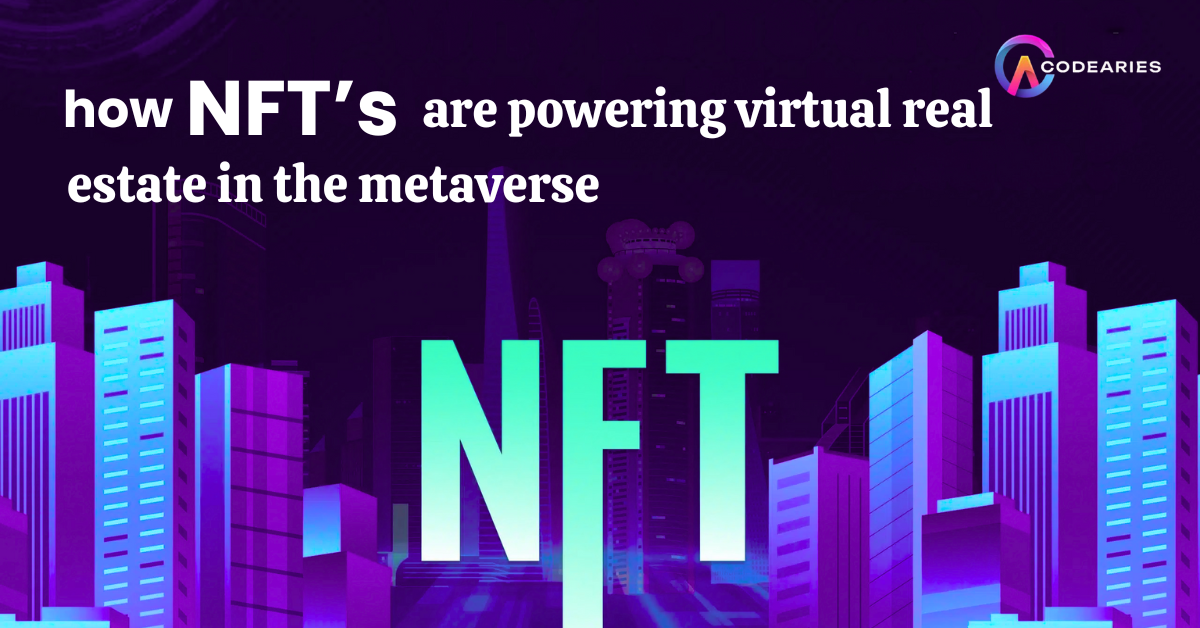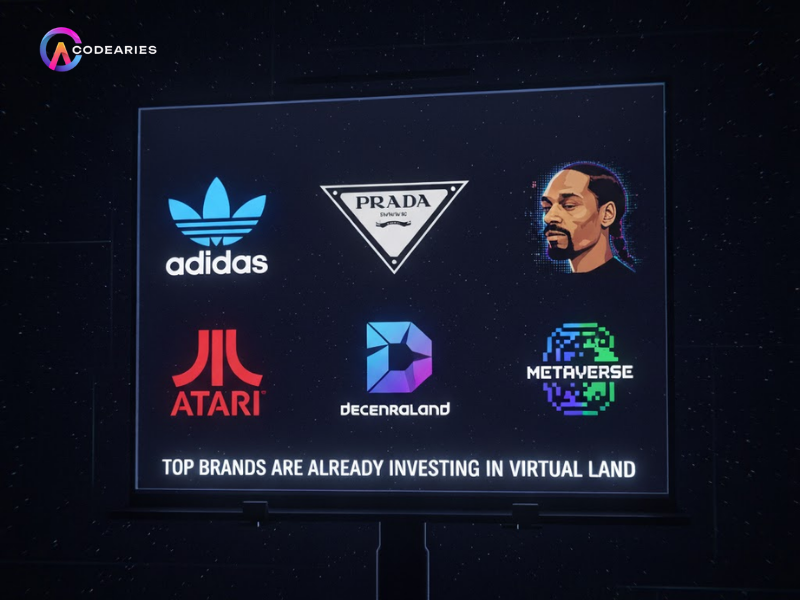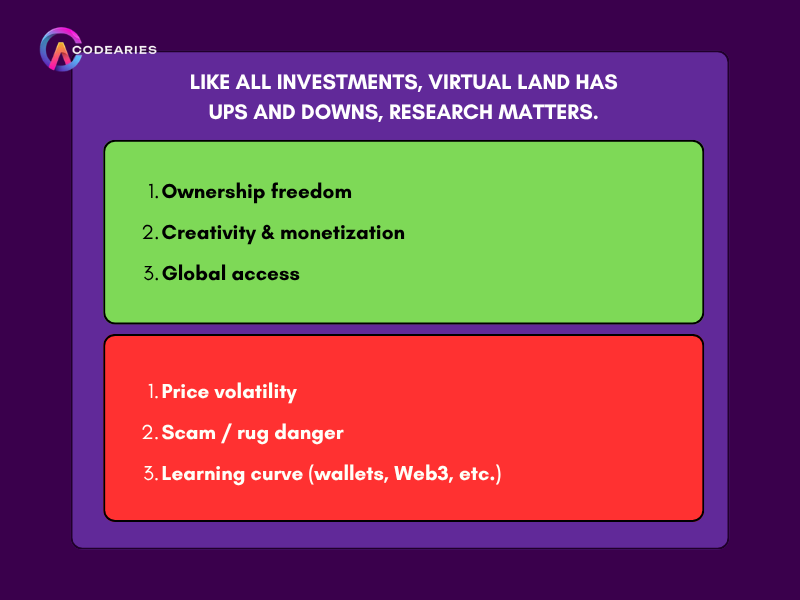
The metaverse has become a changing digital space where ownership, creativity, and community come together. At the center of this new environment is virtual real estate, interactive pieces of digital land that individuals, brands, and communities buy, build, and monetize. In 2026, non fungible tokens (NFTs) are the backbone that gives these digital lands true scarcity, security, and tradable value. As more of our lives and business move online, NFTs are not just reshaping land ownership and exchange, they are changing what it means to build wealth and identity in the virtual world.
Understanding NFTs and Virtual Real Estate
NFTs are unique digital tokens built on blockchain technology that represent ownership of a single item or asset. Unlike cryptocurrencies, which are interchangeable, NFTs are one of a kind and indivisible. In metaverse platforms such as Decentraland, The Sandbox, Otherside, and Spatial, each land parcel, storefront, or custom world is minted as an NFT. These tokens provide verifiable digital ownership visible to everyone and are protected against forgery or theft.
Beyond simple proof of ownership NFTs empower buyers to
- Transfer or sell virtual land just like physical real estate, but with global and instant settlement.
- Lease or monetize property as event venues, advertising spaces, or immersive shops.
- Customize land with branded content, games, artwork, and interactive experiences.
- Join decentralized governance, as NFT landholders vote on platform upgrades and policies.

Why Virtual Real Estate Is Booming in the Metaverse
Demand for metaverse land is exploding for several reasons
- Digital lifestyles and remote work make immersive online worlds more relevant than ever.
- NFTs unlock programmable digital value, including automated royalty payments for creators each time an NFT is resold.
- Virtual events, retail, and entertainment let brands and individuals monetize their presence in ways that physical locations cannot match.
- Scarcity and uniqueness attract investors, speculators, and creators looking for new types of assets.
In 2025 and beyond, major brands, celebrities, and artists will launch metaverse stores, host concerts, and build gated communities that will only be accessible to NFT landowners. These projects generate headlines and offer users social status, exclusive access, and new forms of passive income.
Key Features Making NFTs Essential for Virtual Real Estate
- True digital ownership: Buyers have cryptographic proof of land rights that cannot be duplicated or revoked.
- Tradability and Liquidity: Markets like OpenSea, Rarible, and native metaverse exchanges allow anyone to buy, sell, or swap virtual land with ease.
- Programmable Rights: Smart contracts automate access rules, events, collaborations, and rent or resale proceeds.
- Customizability and Interoperability: NFT lands can host unique buildings, art, avatars, and can often be imported into different worlds using shared standards like ERC721 and ERC1155.
- Royalties: Creators and early builders earn a percentage of future transaction value each time land is resold or monetized.
Real World Examples and Use Cases
- Decentraland regularly sees multimillion dollar sales of NFT land, with users building art galleries, concert spaces, fashion boutiques, and gaming experiences..
- The Sandbox partners with record labels, celebrities, and gaming companies to sell NFT estates for music festivals, product launches, and interactive quests.
- Metaverse developers are creating virtual office hubs, NFT gated communities, and exclusive conference venues for remote co working and global networking
- Brands like Adidas, Prada, Atari, and Snoop Dogg own and monetize land as advertising spaces, sponsoring events, or providing premium entertainment.
- NFT art shows, museums, cinemas, and digital learning campuses thrive as creators combine visual art with educational or collaborative features.
Business and Economic Impacts
NFT powered virtual real estate is creating an entire digital economy. Secondary marketplaces for virtual land have daily trading volumes in the millions. Landowners lease spaces to creators and advertisers, host paid events, or open immersive shopping experiences with NFT gated digital goods. Developers offer land development and creative services. Even digital architects and interior designers are in demand. The result is an ecosystem that mirrors the real world but operates with borderless speed and endless creative freedom.
Challenges and Criticisms
- Valuations can be volatile and speculative, with prices rising and falling based on hype, news, and platform updates.
- Usability is still an issue as many users find NFT wallets and Web3 interfaces complicated.
- Legal frameworks for digital asset ownership and resale are just beginning to take shape.
- Not all metaverse projects will succeed or grow communities, making platform selection and careful research crucial for buyers.
Despite these challenges, the wave of innovation is unlikely to slow as new standards, user experience improvements, and wider cultural adoption take hold.

How Codearies Helps You Succeed in NFT Powered Virtual Real Estate
At Codearies, we provide the expertise, creativity, and technology foundation to help brands, creators, investors, and communities unlock the value of NFTs in virtual real estate.
Here is how we help
- Virtual Land Strategy Mapping: We offer guidance on the best metaverse platforms, token standards, and market opportunities for your goals
- NFT Minting and Customization: We ensure the secure creation of unique land tokens, metadata, and branded or interactive experiences tailored to your brand or project.
- Marketplace Integration: We manage listings and sales support for seamless onboarding on major NFT and metaverse property exchanges.
- Smart Contract and Royalty Engineering: Our advanced contract logic automates access controls, rental agreements, fractional ownership, and royalty distributions.
- Community Building and Marketing: We create campaigns to attract buyers, renters, and audiences for your land, events, or digital spaces.
- Education and Onboarding: We provide training and easy onboarding for both experienced users and newcomers to make virtual real estate accessible.
With Codearies, your virtual property journey from idea to marketplace to a vibrant digital destination is safe, creative, and ready for the future.
Frequently Asked Questions
Q1 Can anyone buy and sell virtual real estate NFTs?
Yes. Anyone with a compatible wallet and some cryptocurrency can take part in NFT based metaverse land markets with global access.
Q2 Which platforms are most popular for NFT real estate?
Decentraland, The Sandbox, Otherside, Spatial, and Voxels are among the largest, but the market is expanding with new worlds focused on gaming, lifestyle, business, and art.
Q3 How can I monetize my metaverse land?
You can host events, lease property, create branded experiences, or build digital storefronts to earn money through ticket sales, advertising, or user engagement.
Q4 Is it safe to invest in virtual property NFTs?
The technology is secure, but values can be volatile, and the reputation of the platform is important. Always do your research, seek expert advice, and never invest more than you can afford to lose.
Q5 Does Codearies help with design and creative development?
Absolutely. Our team can conceptualize, design, script, and deploy custom virtual buildings, art, avatars, and social experiences for your virtual land.
For business inquiries or further information, please contact us at


